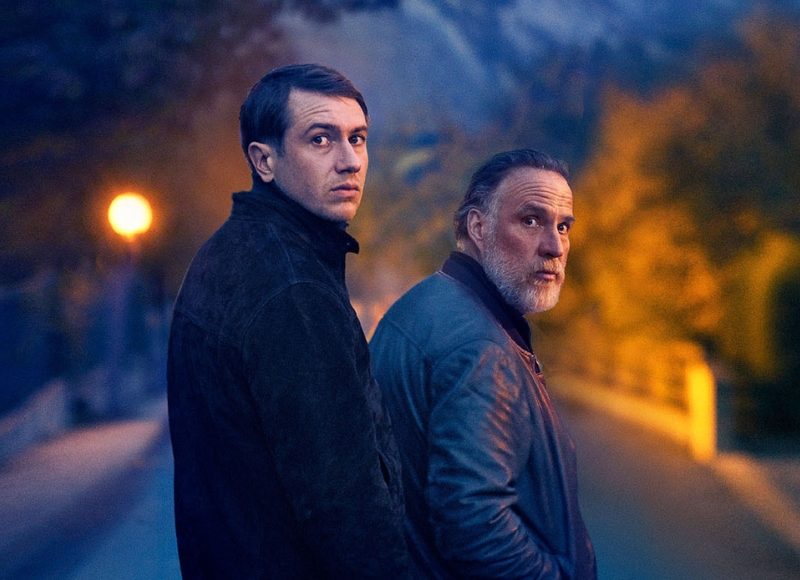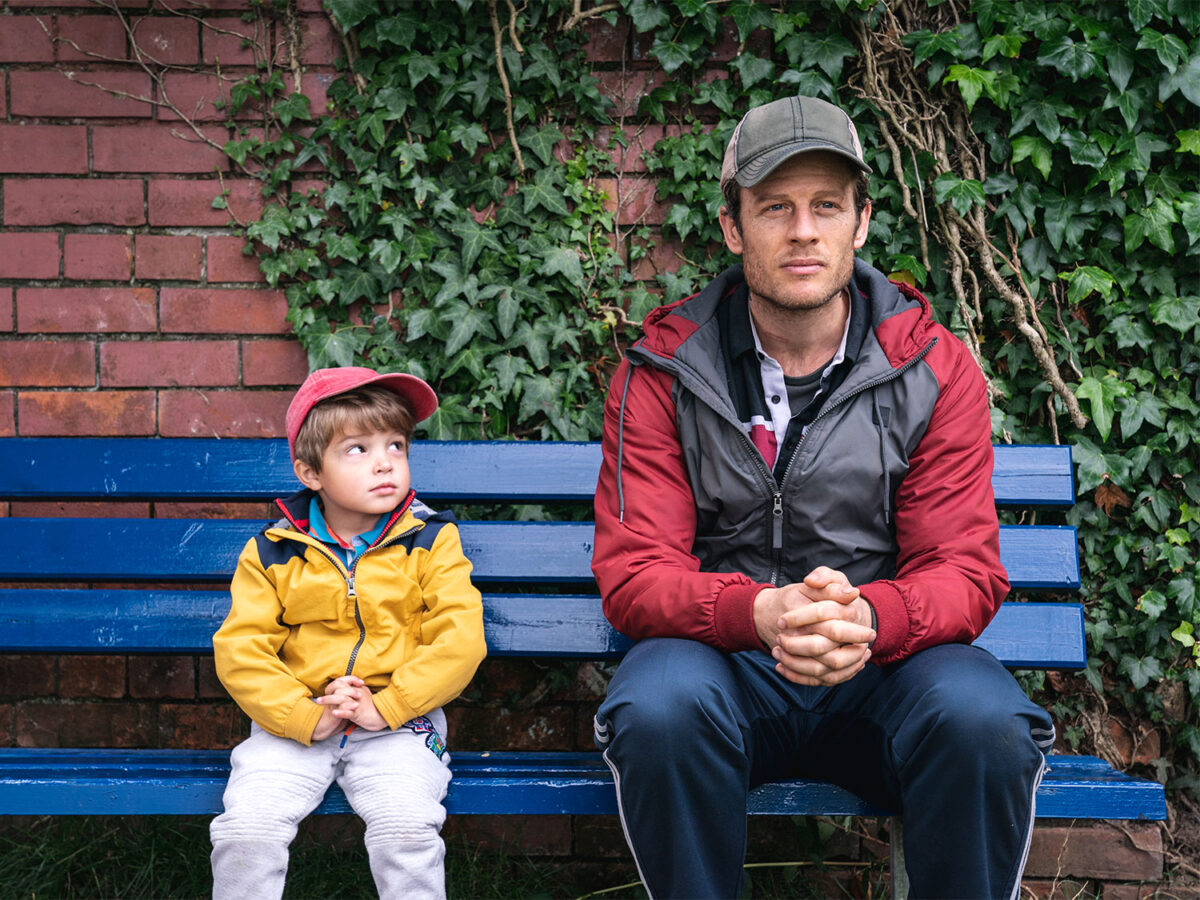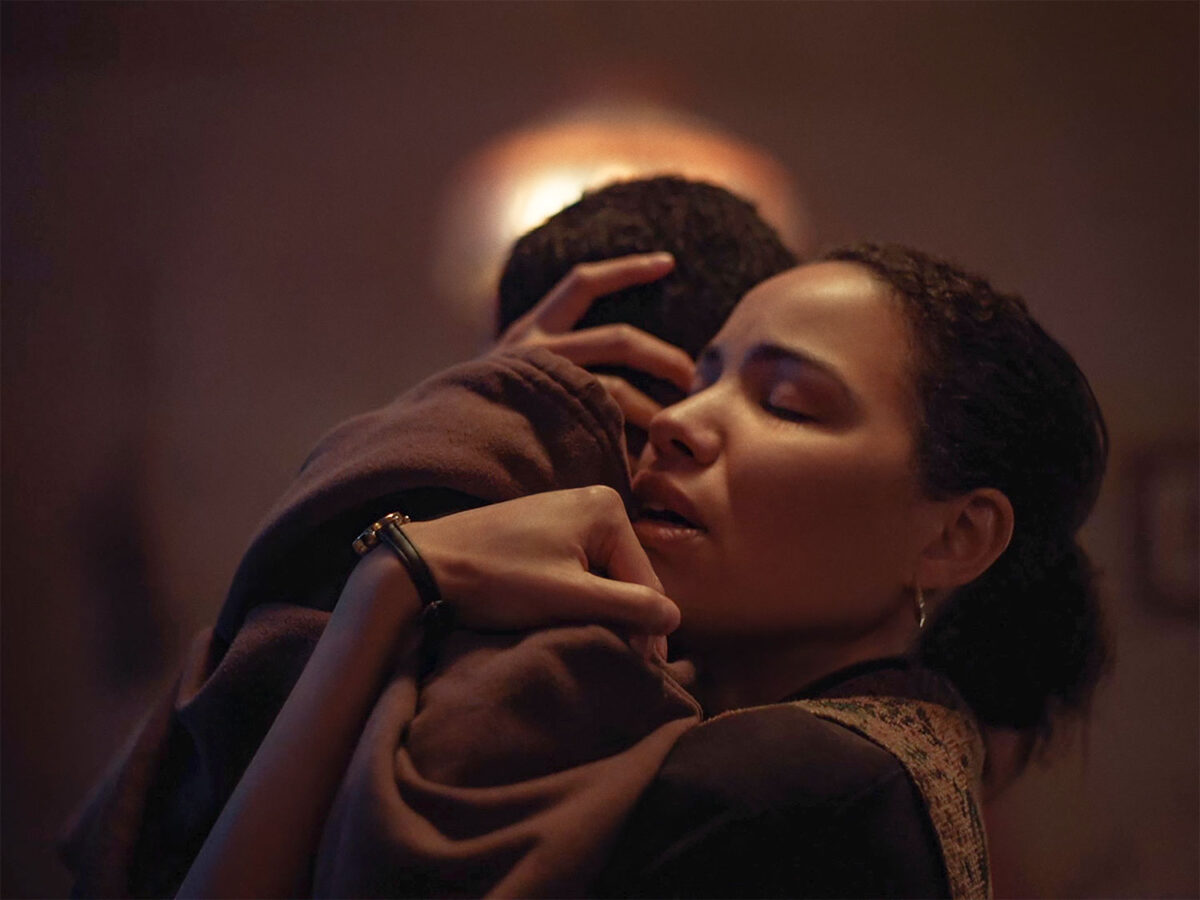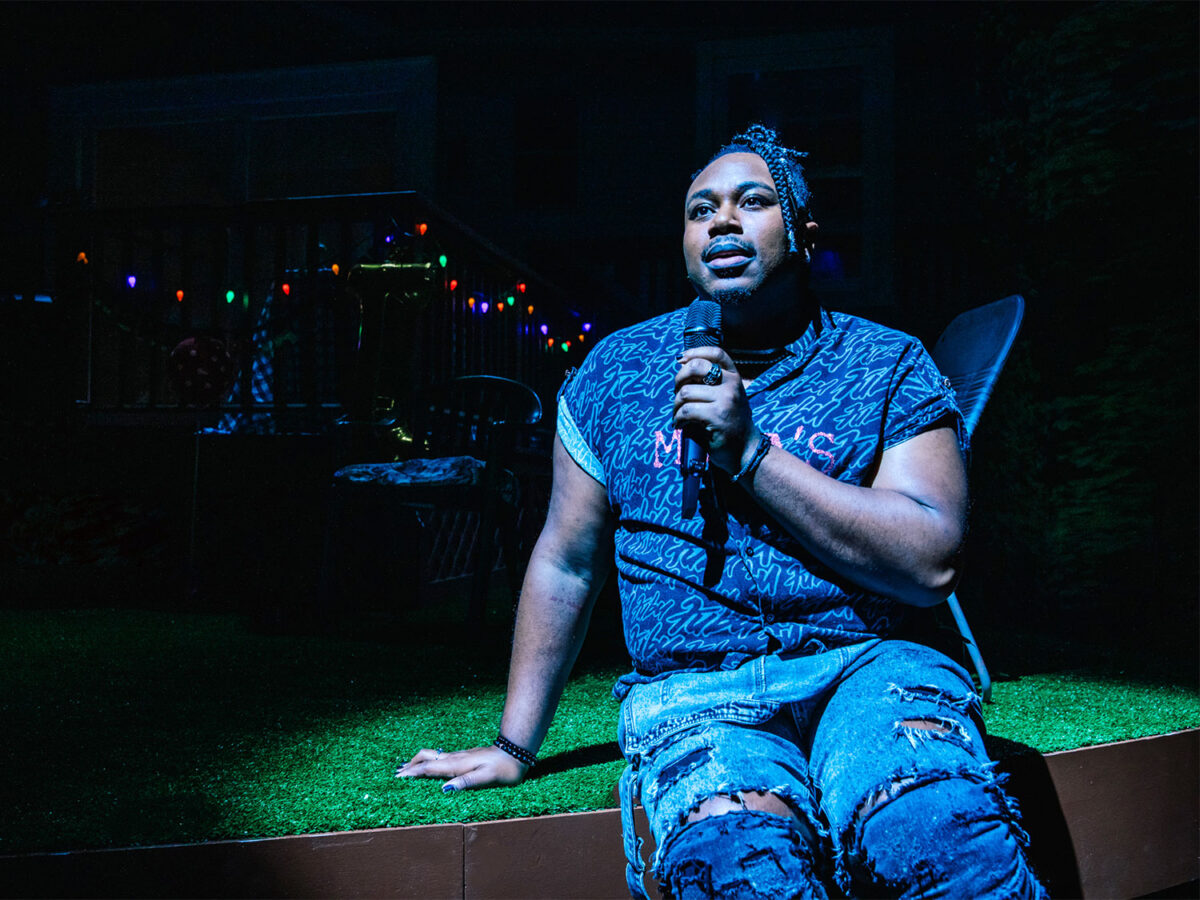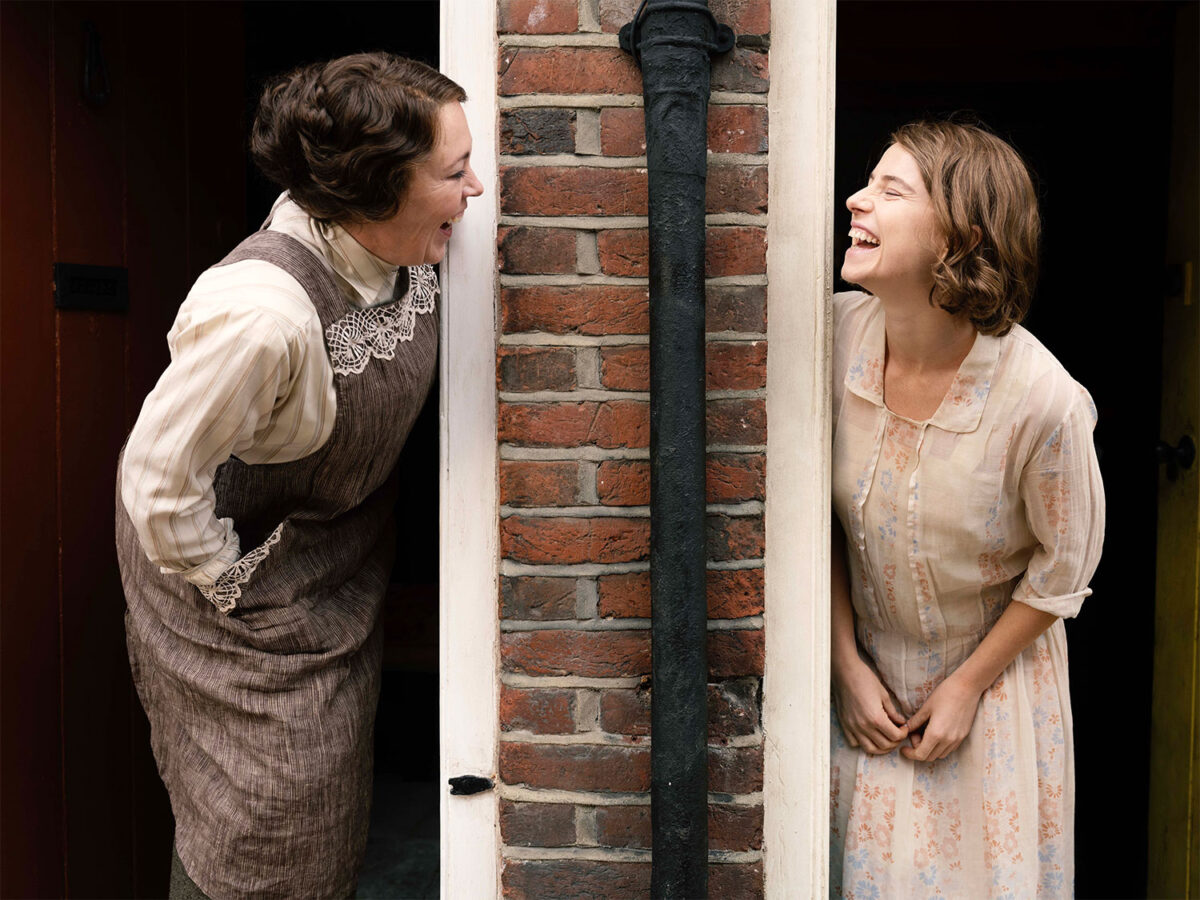How do you forget the insoluble? How do you move on? These are questions asked by Dominik Moll, director of “The Night of the 12th,” who, with Gilles Marchand, wrote the screenplay based on a short passage from Pauline Guéna’s true crime book “A Year with the Crime Squad.” Stunning and methodical, “The Night of the 12th” remains both pragmatic and heart wrenching as the detective division of the Grenoble police embark on what seems like a straightforward, if there ever is such a thing, murder investigation.
Scanning a backdrop of Grenoble, sitting at the base of the Alps, the metropolitan area of this city under a million in population is spread out into a series of suburbs. A somewhat sleepy community that has given rise to research and technology centers, it is primarily renowned for its upscale ski resorts. Opening on the party of a retiring police captain, it is apparent this is a cohesive unit. Assuming the leadership of the group is Captain Yohan Vivès, younger than most of his crew but clearly a respected choice. Yohan’s mettle is immediately tested when they are called out on a murder.
Clara Royer, 20, walking home from a party at the house of her best friend Nanie, is accosted near her house by a hooded man who calls her name. Startled, she stops just as he splashes her with alcohol and calmly ignites his lighter, setting her aflame. The savagery of the attack, the lying in wait aspect of the assault, is the clue that leads the detectives to the conclusion that this was premeditated and vengeful. Interviewing her friends, they find that Clara has left a trail of former lovers in her wake. Drawn to “bad boys,” she was on both sides of the “love ‘em and leave ‘em” equation making the crime harder to unravel.
Yohan must try to untangle the complicated life of the seemingly happy-go-lucky victim, loved by her girlfriends and openly disdained by most of her bedmates. As much a quest to discern the who of the equation and solve the murder, it is also a dissection of Yohan’s methods and inscrutable personality. As they peel away more and more layers to Clara, it is Yohan who admonishes his detectives, prone to crude jokes, that their job is not to pass judgment on Clara’s lifestyle and her choices but to find those who would have wished her ill. It is Clara, regardless of their personal views, who was the victim and she did not deserve such a sordid death.
Yohan leads us through the intricate trail of suspects and dead ends, trying to navigate his mounting anxiety as the number of suspects increases and the evidence shrinks. It is the genius of Moll that it takes us quite a while before we realize that this isn’t really about Clara; it’s about the police captain. Yohan is reserved. His face gives away little; his tone is level and he is slow to anger; his focus is intense; but it is the specificity of his actions that are our clue to this enigma. He is far from indifferent. He aches for a resolution that will find justice for Clara. Instead, everywhere he turns, he sees her being belittled as though she deserved her death because her moral compass ran against the norm. He is not, as might be surmised from some of his statements, a feminist; he is a champion of the belief that everyone must remain equal under the law. He is offended by the misogyny that surrounds him and is quick to admonish any of his squad who expresses such opinions.
Yohan’s unlikely bond within the department is with Marceau, older, more volatile and in the midst of a personal crisis. They are polar opposites. Yohan, single, seemingly unemotional, pragmatic, organized and meticulous in work and home; Marceau, passionate and messy, will act first and question later. His wife has left him and his world has been upended. Grizzled and tattooed on the outside, he is a sentimental romantic at heart. In a telling scene that reveals the depth of Marceau, a man from an earlier generation, and highlights the blindered focus of Yohan, Marceau quotes a passage of poetry to an uncomprehending Yohan. The poem, by Paul Verlaine, a leader of the Symbolist movement in 19th century literature, reveals the bruised soul of Marceau while also illustrating something missing in Yohan. They are as close as they are far apart. Even Yohan’s obsession with cycling at night, alone, at the local velodrome, perplexes Marceau. It’s like his friend is a hamster on a wheel, running faster and faster and never gaining ground. To Yohan, laser-focused on his work, this is a release of tension, his only moment of undisturbed peace.
This investigation and its effect on Yohan is precisely like a hamster on a wheel unable to make progress and unable to stop. Why, asks Marceau, can’t he take his bike to the mountains that surround them? For the two men, the beauty of the neighboring Alps is in sharp juxtaposition with the sordid nature of Clara’s death. Yohan is unable to take his single mindedness on the open road, preferring the regularity of the track where he competes only against himself and not the unpredictability of the wilderness. But, in reality, it may be Marceau who is running in circles and losing ground. His job is filling him with hate and his private life is rife with despair.
This case is Yohan’s white whale. The more he digs, the more he finds and the farther he gets from resolution. As in the Kenny Rogers song, Yohan plays the game of knowing when to hold them and knowing when to fold them. From the beginning there was an acknowledgment that some cases are never solved. The collateral damage is never just the family and friends, but also those who invest in the insoluble.
This deeply felt screenplay explores not just the murder investigation but also its relationship to those trying to solve it. Later, a new addition to the group, a female detective, points out that almost all crimes against women are committed by men and those crimes are investigated primarily by men. Her summation is that it is and will continue to be “a man’s world.” But it’s both more and less than that. The police, reminded incessantly by Yohan that their cynicism, sometimes played out in misogynistic tropes, is misplaced. The statement on its face may be true, but in this case it’s unlikely that having women on the team from the beginning would have solved it. What, after a few years, is necessary is fresh eyes and an unbiased perspective, something supplied by a newly assigned female judge.
Johan is an extraordinary detective. It is his willingness to acknowledge that he may never experience closure on this case and that he must file it away in order to stay focused on what he can solve.
The palette used by cinematographer Ghiringhelli is deliberately murky, increasingly ominous and tension-filled much like the crime and circumstances. But it is the actors that make this film the extraordinary character study that it is. Moll lures you into believing that you are watching a murder mystery but you aren’t. “The Night of the 12th” is one of the best character studies you will ever experience. I say experience rather than see because as you are watching the murder and investigation play out, you are really delving into the personalities of all the participants. Each suspect is vivid in ways that are indescribable, whether it’s the brutal wife-beater; Wesley, her alleged boyfriend who immediately disavows her; the rapper who composed a hate letter against her; or the creepy neighbor. As already described, Marceau, the detective closest to Johan, leads with his fists as he is dying inside. When asked to describe him, Johan’s response was “It’s complicated.”
It is Bastien Bouillon who takes this film from good to great. Almost devoid of facial expression, always the observer and rarely the participant, his Johan is a complex mixture of emotion and detachment that increases the depth of the character. This feeling of profundity gradually overtakes you as you begin to see life through his seemingly impenetrable eyes. It is a masterful performance that sneaks up on you in a thousand different ways.
“The Night of the 12th” was nominated for ten César Awards, the French equivalent of the Oscar, and won six including, Most promising Actor for Bastien Bouillon (Johan); Best Supporting Actor for Bouli Lanners (Marceau); Best Adapted Screenplay (Moll and Marchand); Best Sound; Best Director (Moll); and Best Picture.
See this film. It should be uncorked like a fine bottle of wine because it gets better and deeper with the time to reflect.
In French with English subtitles.
Opening June 9 at the Laemmle Royal.



